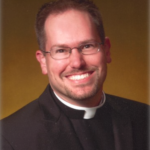9/29/2023
Caring for Creation: The Time Is NOW!
 Fr. Rich Andre, CSP
Fr. Rich Andre, CSP
September 29, 2023
 Fr. Rich Andre, CSP
Fr. Rich Andre, CSP
September 29, 2023
In the final days of August 2021, Hurricane Ida barreled towards Louisiana. The media was fixated on whether the billions of dollars spent on levees in New Orleans since Katrina in 2005 would protect the people there.
The levees of New Orleans held, but they didn’t protect the people of New Orleans from Ida’s wind damage or the resulting loss of electricity… and they didn’t protect people in other Louisiana parishes from devastating floods. Not only did people in Louisiana, Mississippi, and Tennessee die from the effects of Ida, but dozens of people in Maryland, Pennsylvania, New Jersey, New York, and Connecticut also drowned in their basement apartments due to flooding caused by the remnants of this one storm. Why were people living in basement apartments? Because it was the only place that they could afford to live.
Until recently, it was relatively easy to think that climate-related disasters were simply “acts of God” beyond our control. We can’t think that way anymore. Human beings are playing a significant role in causing the tragedies and in exacerbating the effects. It’s comforting to tell ourselves that we’ll just have to spend lots of money to mitigate the worst effects of climate change. But there simply isn’t enough money to do that. I shudder to think what will happened to downtown Boston as the sea level rises. The Paulist Center will still sit above the water, but our utilities, public transit, and local members’ homes will be decimated.
Pope Francis presciently wrote this in his encyclical Laudato Si’ seven years ago: “We are faced not with two separate crises, one environmental and the other social, but rather with one complex crisis which is both social and environmental” (#139). It is the poor who will bear the brunt of the consequences of climate change. Francis wrote, “Strategies for a solution demand an integrated approach to combating poverty, restoring dignity to the excluded, and at the same time protecting nature” (#139).
The Book of James is perhaps the closest equivalent in the New Testament to the wisdom literature in the Old Testament. James feels remarkably relevant to contemporary life, perhaps because it was written to a community with more cultural diversity than the Old Testament. James challenges us to consider how deeply our Christian faith has permeated our daily actions. “Do we treat rich and poor people alike?” James asks. I think most of us instinctively say why yes, we do. But do we? Throughout this country, our neighborhoods have become more and more economically homogenous, so that most of our interactions are with people of similar financial means as ourselves. Can we comfortably bear the title of “Christian” while we make distinctions among ourselves on who is worthy to be protected from environmental devastation and who is not?
This coming Wednesday, October 4, Pope Francis releases a supplement to Laudato Si, an exhortation called Laudate Deum. No doubt it will call us to something much more drastic than using public transit and washing our clothes in cold water. God is calling us to radical, sacrificial love.
Open our eyes and our ears, Lord, before it is too late!